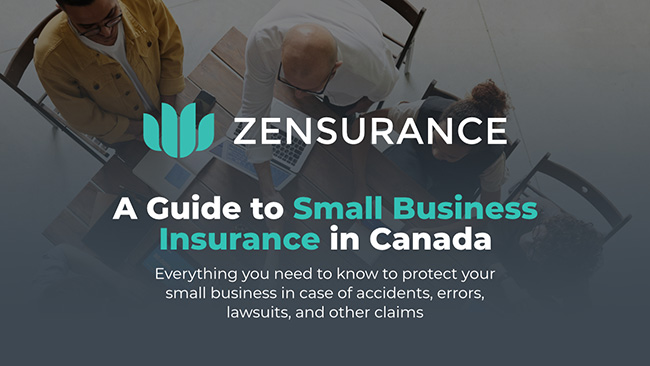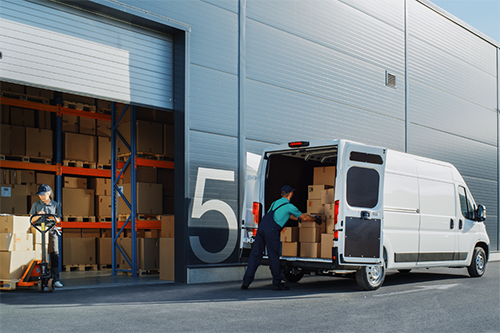Landlords who own mixed-use commercial properties, a unique combination of residential and commercial spaces, face a distinct set of risks. These properties necessitate tailored insurance policies to adequately cover these unique risks.
The specific types of insurance needed can vary based on the nature of the properties’ businesses and residential units, such as retail shops and offices alongside condos or apartments.
Let’s delve into what you need to know about insuring a mixed-use commercial property:

Download Our FREE Insurance Whitepaper
Learn everything you need to protect your small business.
Whitepaper download
"*" indicates required fields
Your email address will be used by Zensurance to provide latest news, offers and tips.
You can unsubscribe at any time.

Related Posts
Categories
Vital Coverages for Mixed-Use Commercial Properties
A comprehensive mixed-use commercial property insurance policy typically includes the following types of coverages:
- Commercial Property Insurance: Commercial property insurance covers damage or loss to the building caused by fire, water, a natural disaster, theft, and vandalism. Business contents insurance is usually included to protect your contents (electronics, furniture, fixtures, and office equipment) in the building as a sub-coverage of your commercial property policy.
- General Liability Insurance: General liability insurance covers property owners against third-party bodily injury and third-party property damage claims, such as those from tenants or visitors who trip, fall, or are injured on the property.
- Business Interruption Insurance: A recommended endorsement to add to your commercial property coverage, business interruption insurance covers your operational overhead, lost rental income, and other financial commitments (like loans and utility bills) following an insurable loss that results in having to close the property while repairs are underway temporarily.
- Equipment Breakdown Insurance: This insurance covers repair or replacement costs of machinery or equipment in the building if they malfunction due to an electrical or internal mechanical failure. Also referred to as boiler and machinery insurance, it covers HVAC systems, water heaters and furnaces, computers, and video surveillance systems.
- Cyber Liability Insurance: A cyber-attack or data breach can put your business out of commission, be expensive to recover from, and possibly lead to lawsuits from affected clients. Cyber liability insurance is an inexpensive way to deal with those issues quickly if your cloud storage, website, email, or point-of-sale (POS) system is compromised. It covers restoring your affected software systems, credit monitoring and legal expenses, and losses sustained due to a system outage.
Your policy may require other types of insurance for complete protection. Speak to a licensed Zensurance broker if you have questions about what your policy should contain.
5 Ways to Minimize Risks and Lower Your Premium for Mixed-Use Building Insurance
Getting the customized business insurance policy you need to protect your mixed-use commercial property is vital to safeguard your finances. But there are other steps you can take to minimize your risks and keep your premium low, including:
- Install a Monitored Security System
Have a monitored video surveillance system installed and establish controlled access to the building to restrict access to it to deter theft and vandalism.
- Conduct Regular Maintenance of the Property
Regular inspections and maintenance of the property and its systems, such as HVAC and elevators, are key to identifying and addressing minor issues before they become major problems. This proactive approach helps to prevent potential water damage, plumbing leaks, faulty electrical wiring, or structural issues, and ensures the safety and comfort of your tenants.
- Require All Tenants to Carry Insurance
Require both business and residential tenants to have insurance to protect their belongings and cover their liabilities. Ask them to provide a valid certificate of insurance as part of the lease agreements you have them sign.
- Develop a Business Continuity Plan
All business owners should have a detailed business continuity and emergency response plan to help them deal with unexpected events threatening their businesses and properties. A business continuity and emergency response plan is a strategic document containing critical information any organization needs to continue operating in the face of unexpected disruptions or disasters. Having an emergency kit on-site is also wise if you’re forced to hunker down for several hours or days because of emergencies.
- Upgrade to Energy-Efficient Systems
If necessary, upgrade your building’s lighting and appliances to energy-efficient options to reduce the risk of electrical fires and decrease overall utility costs. It may be worthwhile to install solar panels and other green-energy systems to make your building self-sufficient.
How to Get Mixed-Use Commercial Property Insurance
Getting a customized, low-cost business insurance policy to protect your mixed use commercial property is simple through Zensurance.
Fill out our online application for a free quote.
Our experienced brokers will handle the market search for you, customizing the policy to your needs, and addressing any concerns you may have. Let us provide you with the peace of mind and comprehensive coverage of your finances and property.
Related Posts
5 Must-Have Insurance Coverages for Subcontractors
For professionals who earn the bulk of their income as a subcontractor, getting a customized subcontractor insurance policy is not only wise, it’s an investment in your financial health and career. Here are five coverages every subcontractor should have.
What’s the Difference Between Premises Liability Insurance vs General Liability Insurance?
Safeguarding your business’s financial wellness and being prepared to cover unexpected accidents and damages on or off your business property requires insurance. Find out if you need premises liability or general liability insurance.
What Is Inland Marine Insurance?
If your business is shipping high-end, expensive equipment or products over land, you should protect them with inland marine coverage. Get an overview of what it is and find out if your small business needs it.
Sign Up for ZenMail
"*" indicates required fields








